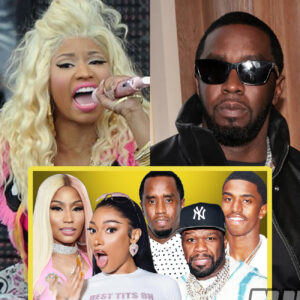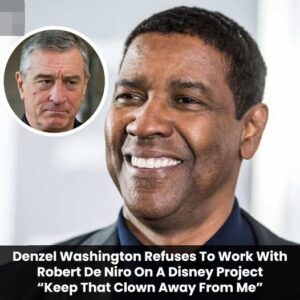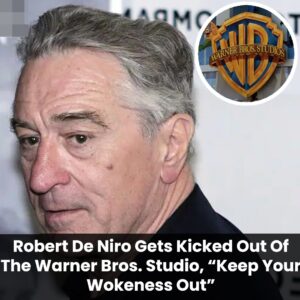**Jaguar Wright’s Controversial Claims: Unveiling the Dark Side of the Music Industry**
In recent years, Jaguar Wright, an R&B singer and outspoken critic of the music industry, has made headlines with her explosive allegations about the dark underbelly of Hollywood. Her claims, which include shocking stories of exploitation, blackmail, and harassment, have stirred significant controversy and prompted discussions about the ethics and practices within the entertainment business. This article delves into Wright’s allegations, examining their context and potential implications for the industry.

One of Jaguar Wright’s most alarming assertions involves the use of drugs at Hollywood house parties, particularly in the Sunset Hills. According to Wright, powerful individuals within the industry would use a numbing agent on the rims of drinks to incapacitate unsuspecting women. This method, she claims, was a precursor to sexual assault and subsequent blackmail. Victims would be coerced into signing unfavorable contracts under the threat of having compromising videos released.
Wright detailed a scenario where an artist would be presented with a contract and, upon refusal to sign, would be shown a videotape of themselves in a vulnerable position from the previous night. This tactic, she argues, has been used to control and manipulate artists, ensuring their compliance and silence.
### Allegations Against Industry Moguls
Wright’s accusations extend to some of the most prominent figures in the music industry, including Sean “Diddy” Combs and Jay-Z. She suggests that these executives have used their power and influence to foster an environment of fear and submission. According to Wright, Diddy, with the support of Jay-Z and other influential executives, has been instrumental in orchestrating parties where young artists are exploited.
These parties, Wright claims, are more than just social gatherings; they are events designed to entrap and control artists. She describes a culture of blackmail, where compromising situations are recorded and used to keep artists in line. Wright also implicates Clive Davis, another industry heavyweight, in these activities, alleging that he, along with Diddy and Jay-Z, has played a role in perpetuating this toxic environment.
### The Culture of Fear and Control
Wright paints a picture of an industry rife with manipulation and coercion. She describes how artists are subjected to humiliation and exploitation as a means to achieve success. The pursuit of power and pleasure, she argues, often takes precedence over genuine talent and artistry. This culture of fear is maintained through a network of powerful individuals who protect each other and ensure that those who speak out face severe consequences.
One of the more controversial aspects of Wright’s claims is her description of “homo thugs” – a term she uses to describe men in the industry who exploit other men sexually to maintain control. This, she suggests, is part of a broader strategy to dominate and manipulate artists, ensuring their loyalty and silence through shame and fear of exposure.
### Suspicious Deaths and Unfinished Memoirs
Wright has also raised concerns about the unexplained deaths of several figures associated with Uptown Records, a label closely linked to Diddy. She points to a pattern of deaths among those who were reportedly working on tell-all books or memoirs at the time of their demise. Andre Harrell, Heavy D, and Kim Porter are among those Wright mentions, suggesting that their deaths were not mere coincidences.
Harrell, the founder of Uptown Records, died of heart failure, while Heavy D reportedly succumbed to a heart attack. Kim Porter, Diddy’s longtime partner, was found dead from pneumonia, though Wright claims an initial coroner’s report ruled her death a homicide and found toxins in her body. Wright argues that these deaths, along with Al B. Sure’s near-fatal experience, are too suspicious to ignore and may be connected to efforts to silence those who knew too much.
### The Role of Jean Deal and Other Insiders
Supporting Wright’s claims are statements from Jean Deal, a former bodyguard for Diddy. Deal has corroborated some of Wright’s allegations, describing Diddy’s involvement in organizing and attending notorious parties. According to Deal, these gatherings are not just social events but are venues for high-profile guests to engage in illicit activities, often involving non-consensual interactions.
Deal’s accounts add weight to Wright’s narrative, suggesting that the culture of exploitation and control extends beyond just a few isolated incidents. Together, their testimonies paint a bleak picture of an industry where power dynamics are heavily skewed, and personal integrity is often sacrificed for professional gain.
### Implications for the Music Industry
Wright’s revelations, if true, have profound implications for the music industry. They highlight the need for greater transparency and accountability among industry leaders and call into question the ethical standards of those in power. The allegations also underscore the importance of protecting artists, particularly young and vulnerable individuals, from exploitation and abuse.
The music industry, like many other entertainment sectors, has long been criticized for its treatment of artists. Wright’s claims bring these issues into sharp focus, suggesting that systemic changes are necessary to create a safer and more equitable environment. This includes implementing stronger protections for artists, ensuring that those who exploit others are held accountable, and fostering a culture where talent and integrity are valued over power and control.
### Conclusion
Jaguar Wright’s allegations have sparked significant debate and controversy within the music industry. While some may question the veracity of her claims, the issues she raises are not new. Exploitation, manipulation, and abuse of power have long been part of the darker side of the entertainment world. Wright’s boldness in speaking out has brought these issues back into the spotlight, challenging the industry to reflect on its practices and strive for meaningful change.
News
Drama in the Ring! Tyson Fury Terminates John Fury’s Role as Trainer After Brutal Upset by Oleksandr Usyk
In a dramatic turn of events, Tyson Fury has decided to terminate his father John Fury’s role as his trainer following a brutal upset by Oleksandr Usyk. The unexpected loss has sent shockwaves through the boxing community and led to…
(VIDEO) Megan Thee Stallion BAITS Nicki Minaj into another rap beef? | 50 Cent DRAGS Diddy’s son Christian
**Christian Combs Disses 50 Cent and 50 Responds: A Clash of Hip-Hop Titans** In the realm of hip-hop, beefs and controversies are almost as common as chart-topping hits. Recently, a new chapter unfolded in the ongoing saga between Christian Combs,…
Breaking: Gordon Ramsay Throws Robert De Niro Out Of His Restaurant, “Don’t Come Back Here You Woke Baby”
In a dramatic and unexpected turn of events, renowned celebrity chef Gordon Ramsay has made headlines by reportedly throwing Academy Award-winning actor Robert De Niro out of his restaurant. The incident, which has sparked widespread media attention and public debate,…
(VIDEO) Joe Rogan & Matthew McConaughey Exposes 7 Actors Hollywood BETRAYED
**Unveiling the Dark Side of Hollywood: The Stories of Matthew McConaughey, Keanu Reeves, and Wesley Snipes** Hollywood, often seen as a dreamland of glitz and glamour, has a hidden underbelly that reveals a starkly different reality for some of its…
Breaking: Denzel Washington Rejects $100 Million Disney Offer to Work with ‘Woke’ Robert De Niro, ‘He’s a Creepy Old Man’
In a recent turn of events that has left Hollywood in a state of shock and contemplation, Denzel Washington, a figure synonymous with integrity and talent in the film industry, has made headlines by rejecting a colossal $100 million offer…
Breaking: Robert De Niro Gets Kicked Out Of The Warner Bros. Studio, “Keep Your Wokeness Out”
In a shocking turn of events that has sent ripples through Hollywood, iconic actor Robert De Niro was reportedly thrown out of Warner Bros. Studios. The reason cited? Spreading his “creepiness.” This incident has sparked intense debate and controversy, leaving…
End of content
No more pages to load











